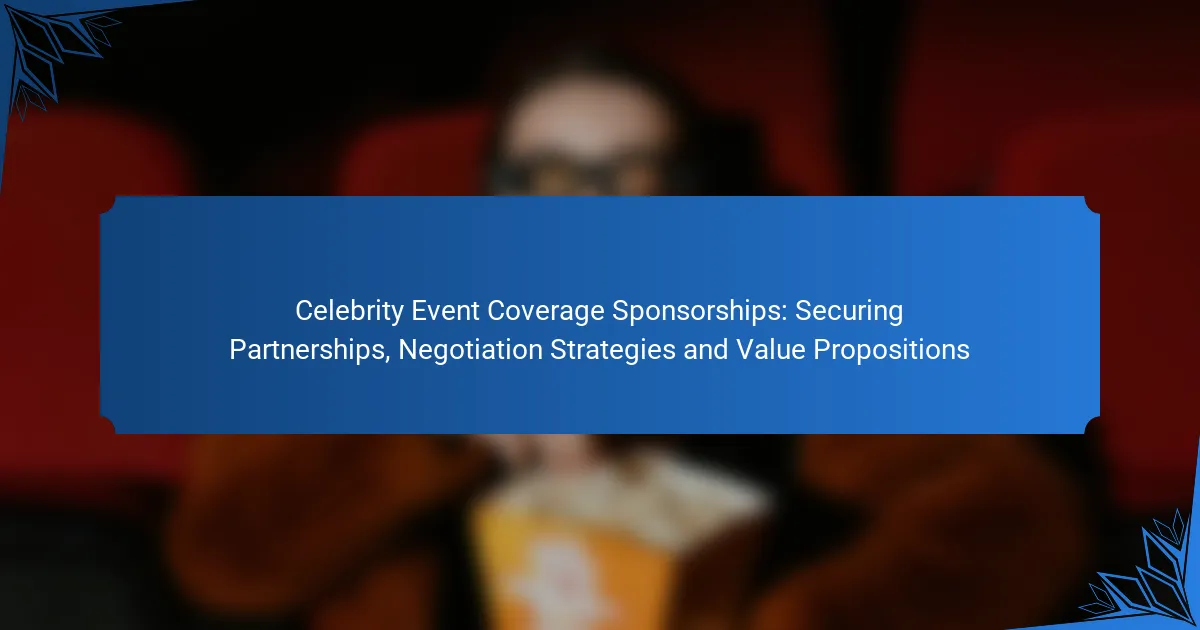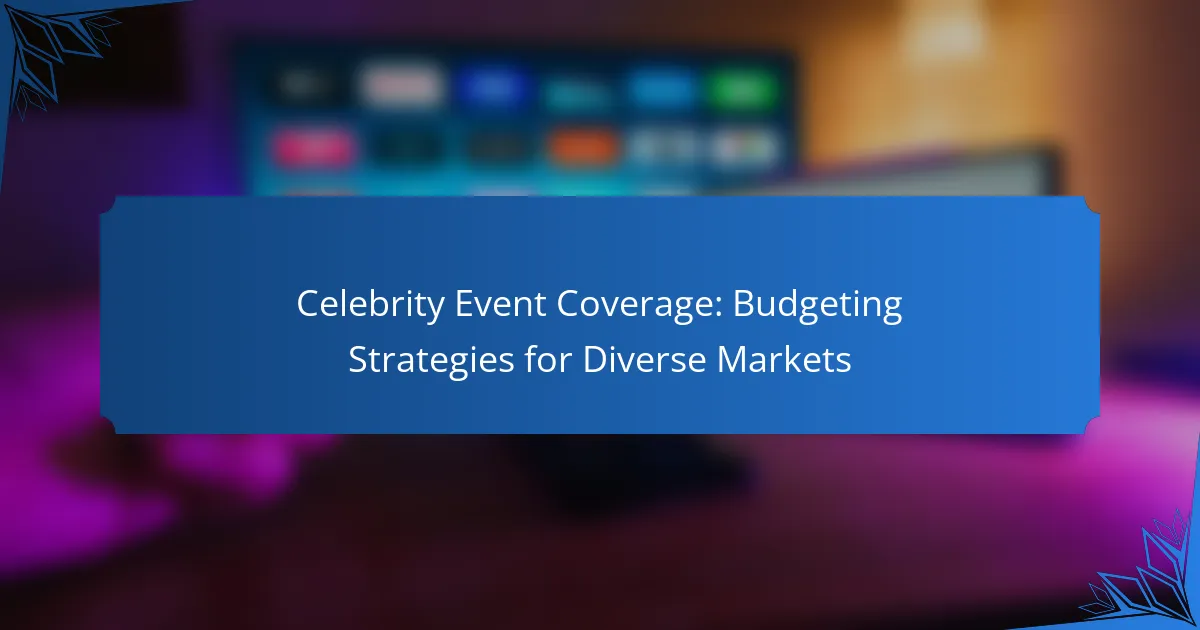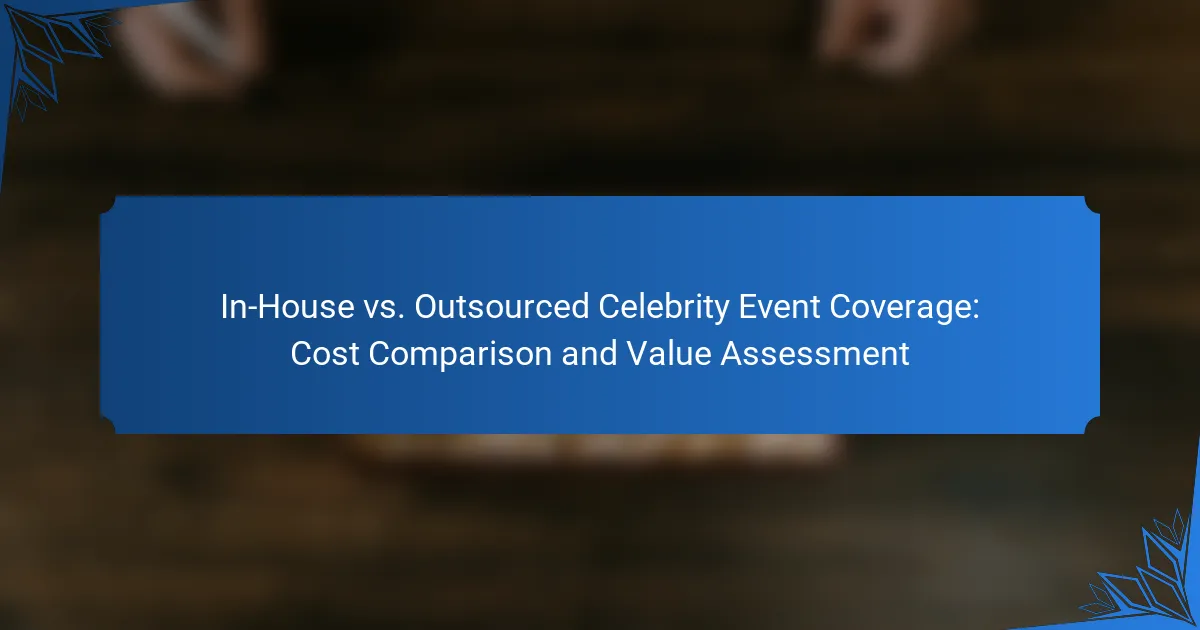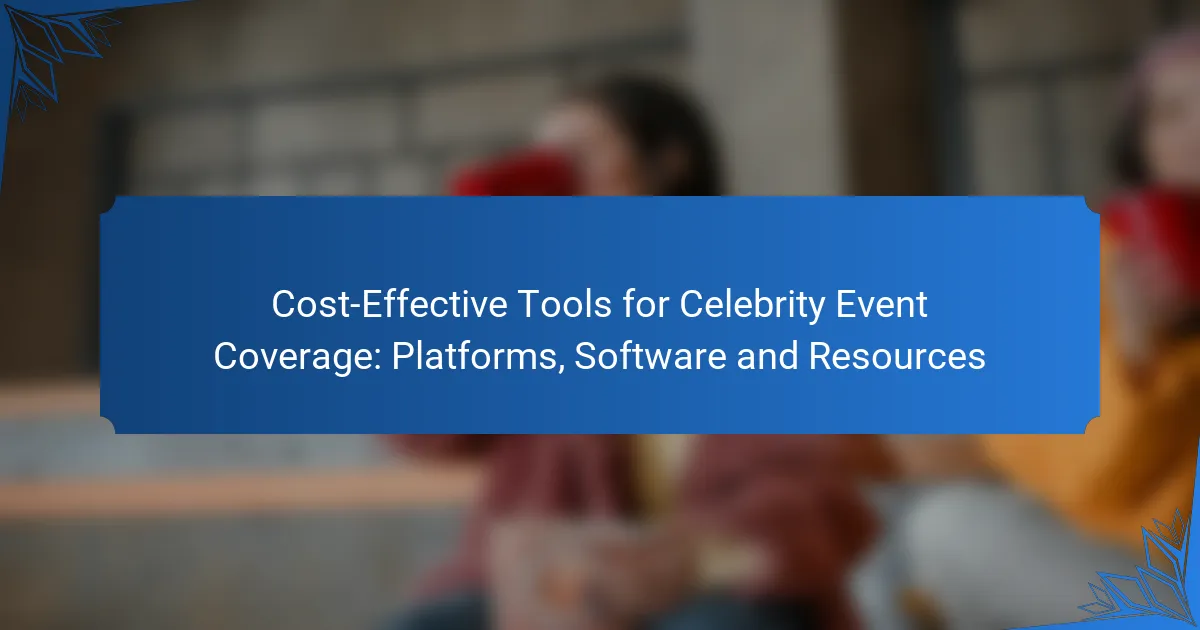Securing sponsorships for celebrity event coverage in Los Angeles requires a strategic approach that includes identifying suitable influencers and fostering relationships with event organizers. By employing effective negotiation strategies and articulating clear value propositions, brands can enhance their visibility and engagement while forming lasting partnerships in a competitive market.

How to secure celebrity event coverage sponsorships in Los Angeles?
Securing celebrity event coverage sponsorships in Los Angeles involves identifying the right influencers, leveraging social media, and building strong relationships with event organizers. Understanding the local market and engaging with businesses can significantly enhance your sponsorship strategy.
Identify key influencers
To secure sponsorships, start by identifying key influencers in the Los Angeles area who align with your brand values. These individuals can include celebrities, social media personalities, and industry leaders who have a significant following and can amplify your message.
Research their engagement rates and audience demographics to ensure they match your target market. Collaborating with the right influencers can enhance your brand’s visibility and credibility during the event.
Leverage social media platforms
Utilizing social media platforms is crucial for promoting sponsorship opportunities. Platforms like Instagram, Twitter, and TikTok are popular in Los Angeles and can help you reach a wider audience quickly.
Create engaging content that highlights the benefits of your sponsorship, including potential reach and engagement metrics. Use targeted ads to reach specific demographics, ensuring your message resonates with the right audience.
Build relationships with event organizers
Establishing strong relationships with event organizers is essential for securing sponsorships. Attend industry networking events and engage with organizers to understand their needs and how your brand can provide value.
Offer tailored sponsorship packages that align with the event’s goals. This can include exclusive promotions, branded experiences, or co-hosting opportunities that enhance the overall event experience.
Utilize sponsorship platforms
Consider using sponsorship platforms that connect brands with event organizers. These platforms often provide a streamlined process for identifying sponsorship opportunities and negotiating terms.
Examples include platforms like SponsorMyEvent and SponsorPark, which allow you to browse events in Los Angeles and submit proposals directly to organizers. This can save time and increase your chances of securing a partnership.
Engage with local businesses
Engaging with local businesses can enhance your sponsorship strategy by creating mutually beneficial partnerships. Collaborate with businesses that share your target audience to co-sponsor events or create joint marketing initiatives.
Local businesses often have established connections within the community, which can help amplify your brand’s reach. Consider offering cross-promotional deals that provide value to both parties and strengthen community ties.
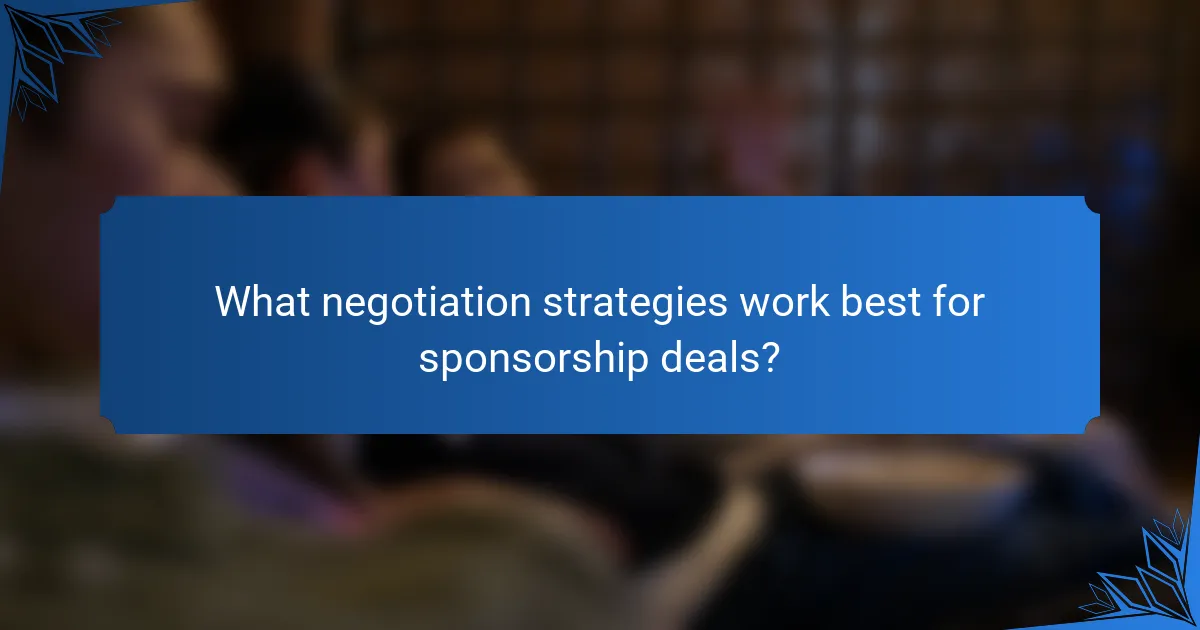
What negotiation strategies work best for sponsorship deals?
Effective negotiation strategies for sponsorship deals focus on understanding mutual benefits, preparing for counteroffers, and establishing clear objectives. These strategies enhance the likelihood of securing favorable terms and long-lasting partnerships.
Understand the value proposition
Understanding the value proposition is crucial for both parties in a sponsorship negotiation. This involves clearly articulating what each side stands to gain, whether it’s brand exposure, audience engagement, or financial support. For example, a celebrity event might offer sponsors access to a targeted demographic that aligns with their marketing goals.
To effectively communicate the value proposition, consider creating a detailed proposal that outlines potential benefits, such as estimated reach, media coverage, and engagement metrics. Highlight past successes to build credibility and showcase the event’s potential impact on the sponsor’s brand.
Prepare for counteroffers
Preparation for counteroffers is essential in any negotiation. Anticipate the sponsor’s concerns and objections, and develop responses that address these points while reinforcing your value proposition. For instance, if a sponsor questions the cost, be ready to justify your pricing with data on previous sponsorship success.
Additionally, establish a range for your terms before entering negotiations. This allows you to remain flexible while still aiming for your ideal outcome. Consider what concessions you are willing to make and what aspects are non-negotiable to maintain your position.
Establish clear objectives
Establishing clear objectives is vital for guiding the negotiation process. Define what you want to achieve from the sponsorship deal, such as specific financial goals, brand visibility, or audience engagement metrics. This clarity will help you stay focused during discussions and make informed decisions.
Communicate these objectives to potential sponsors to ensure alignment. For example, if your goal is to increase social media engagement, emphasize how the sponsorship can facilitate this through promotional activities and shared content.
Utilize data-driven insights
Utilizing data-driven insights can significantly enhance your negotiation strategy. Leverage analytics to present compelling evidence of your event’s reach, audience demographics, and engagement levels. This data can help justify your sponsorship terms and demonstrate the potential return on investment for sponsors.
Consider using tools like audience surveys, social media analytics, and past event performance metrics to gather relevant data. Presenting this information in a clear and concise manner can strengthen your position and make your proposal more attractive to potential sponsors.

What are the key value propositions for sponsors?
Key value propositions for sponsors include increased brand visibility, access to specific target demographics, enhanced credibility, and opportunities for experiential marketing. These elements can significantly boost a brand’s recognition and engagement during celebrity events.
Brand visibility and recognition
Brand visibility is crucial for sponsors, as it directly correlates with audience awareness. By associating with high-profile celebrity events, sponsors can achieve extensive exposure through various media channels, including television, social media, and event coverage.
To maximize visibility, sponsors should consider integrating their branding into event materials, such as banners, merchandise, and digital content. This can lead to a significant increase in brand recognition, often translating into higher consumer interest and sales.
Access to target demographics
Sponsoring celebrity events allows brands to connect with specific target demographics that align with their products or services. Understanding the audience profile of the event is essential for effective targeting.
For instance, a luxury brand sponsoring a high-profile film premiere may reach affluent consumers, while a tech company might benefit from sponsoring a music festival aimed at younger audiences. Tailoring marketing strategies to these demographics can enhance engagement and conversion rates.
Enhanced brand credibility
Aligning with reputable celebrity events can significantly enhance a brand’s credibility. Consumers often perceive sponsorship as an endorsement, which can positively influence their perception of the brand.
To leverage this credibility, sponsors should ensure their values align with the event and its audience. For example, a brand focused on sustainability should consider sponsoring eco-friendly events, reinforcing its commitment to social responsibility.
Opportunities for experiential marketing
Sponsorships provide unique opportunities for experiential marketing, allowing brands to create memorable interactions with consumers. Engaging experiences, such as interactive booths or exclusive VIP access, can leave a lasting impression.
Brands should design experiences that resonate with the event’s theme and audience preferences. For example, a beverage company might offer tastings or mixology classes at a music festival, directly involving attendees and fostering brand loyalty.

What criteria should be considered when selecting sponsorship opportunities?
When selecting sponsorship opportunities, it is crucial to evaluate factors such as event relevance to the brand and audience alignment. These criteria help ensure that the partnership effectively enhances brand visibility and resonates with the target market.
Event relevance to brand
Event relevance refers to how closely an event aligns with a brand’s identity, values, and goals. A sponsorship should enhance the brand’s image and connect with its core message. For example, a luxury watch brand may find greater value in sponsoring a high-end fashion show than a local sports event.
Consider the event’s theme, purpose, and overall reputation. A well-aligned event can amplify brand recognition and foster positive associations. Brands should also assess the potential for product placement and engagement opportunities during the event.
Audience alignment
Audience alignment involves understanding the demographics and interests of the event’s attendees. Brands must ensure that the audience matches their target market to maximize the impact of their sponsorship. For instance, a tech company sponsoring a gaming convention would likely reach a more relevant audience than one sponsoring a cooking festival.
Analyzing audience data, such as age, income, and lifestyle preferences, can provide insights into potential engagement. Brands should also consider the size and engagement level of the audience, as a smaller but highly engaged group may be more valuable than a larger, less interested crowd.
